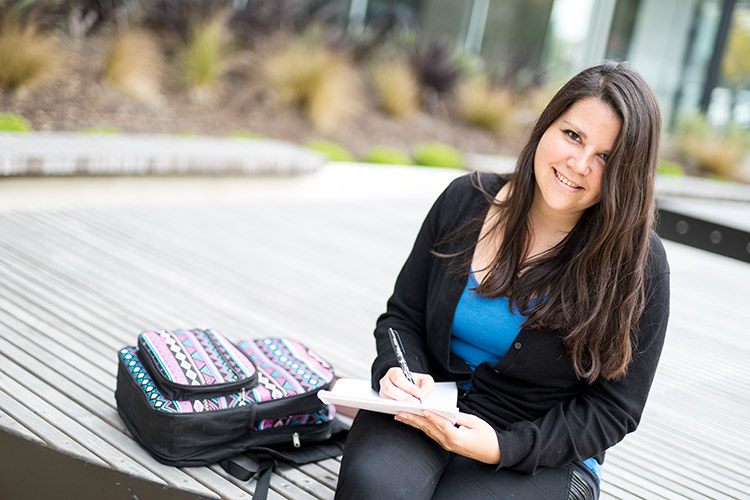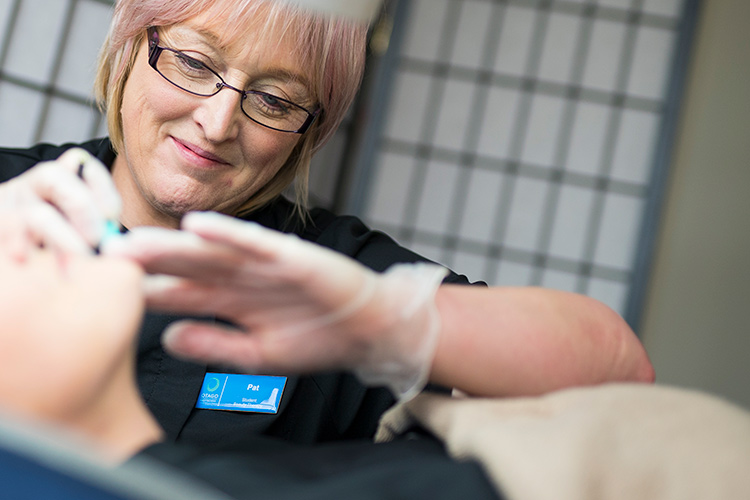Cover letters
When you apply for a job your CV or Resume can be accompanied with a cover letter. This is your opportunity to introduce yourself and outline exactly why you believe you are the right candidate for the job.

A cover letter is your opportunity to introduce yourself.
What is a cover letter?
A cover letter is a short letter which accompanies your CV or Resume. Your cover letter is the first impression an employer has of you, if your cover letter stands out, they will go on to read your CV. An employer may look at a cover letter for only 6 seconds before they decide to read further or not.
It is good practice to send or hand out a cover letter with your CV. As all employers are different, it is best to provide all the information when first applying for the job.
What is the difference between a CV and a cover letter?
| Key differences between a CV and a cover letter | |
| CV | Cover letter |
| 2-3 pages in length | 1 page in length |
| Provides referees | No referees |
| Able to use shorter sentences | Use full length sentences |
|
Goes in depth to provide information/evidence on employment, education, skills, achievements, voluntary roles, hobbies/interests and placements |
Introduces information on education, placement and employment |
| Can use tables, lists, bullet points and paragraphs | Uses paragraphs |
| Can lead to getting an interview | Encourages the employer to read your CV |
What goes into a good cover letter?
When you see a job advertised that you really want, make sure you tailor your cover letter to the job description and the list of skills required, if you are confident that you have these set skills.
A cover letter should:
A good cover letter is clear and straight to the point and it should be focussed on only one job. You should first clearly state your main reasons for choosing that organisation as your preferred place to work. Tell the employer why you are interested in the position at that organisation and what you can offer them - this is important.
It is a good idea to do research on the company as well, so you can say why you want to work for them specifically and express to them how you would add value to their working environment.
Always use full sentences and paragraphs in a cover letter. It should be no longer than a page in length and makes use of professional wording (avoid common fraises like ‘a well rounded person’).
Direct your cover letter to an employer, if their name is not on the job advert, contact the company to ask or do further research to find who to direct it to. This will show you are able to go the extra mile for the role. Pay close attention when writing your cover letter and ensure that you are not addressing it to the incorrect employer.
How to write a Cover Letter
Paragraph one
Identify which job you are applying for and where the job was advertised (in case the organisation has multiple jobs being advertised at once).
Paragraph two
Briefly explain your current situation - what you’re currently studying/working towards, your experiences and your suitability for the job in general.
Paragraph three
Provide more details on your situation - talk about any placements you’ve done or are doing during your studies, what skills you have that will support you to get the job, any career plans that include this job and any other relevant factors.
Paragraph four
Do your research about the company - what are their values/goals/aspirations? Do any of these match your own in your career goals? How would you add value to their team environment? Here you are telling them why they should employ you.
Paragraph five
Closing paragraph - thank the employer for their time and provide contact details so they are able to contact you (please make sure your answer phone message is a professional one).
Your cover letter can make you stand out of the crowd.
Cover letter template
Use this template to help with the structure and layout of your cover letter.
|
[Your name Your address] [The Company name The Company address] [Date]
Dear [recipient’s name if you know it, or Hiring Manager if you can’t find a name] Paragraph one: (Express your enthusiasm for applying for the role, along with key experiences/training that makes you a strong candidate for the position). Paragraph two: (Do your research about the company - what are their projects/client base/professional development opportunities/values/aspirations? Do any of these align with your own in your career goals? How would you add value to their team environment? Here you are showing that you understand the role you are applying for). Paragraph three: (What are your study/career highlights that best link with the advertised role? Briefly explain your current situation - what you’re currently studying/working towards, your experiences and your suitability for the job in general.) Paragraph four: (What skills and experience do you have that will support you to get the position? Additional experiences relevant to the role for example placements you’ve done or are doing during your studies - Key papers achieved/volunteer work/awards/achievements/class rep/community work/past employment, etc). Paragraph five: (Thank the employer for their time. I look forward to an opportunity to discuss this position in person.) |
Here is an example cover letter using this template.
|
Kylie Wayans HealthCare NZ 08/11/2023 Dear Brad Patrick, I am excited to apply for the Support Worker position. My combination of successful study with the Health and Wellbeing level 4 certificate, Healthcare Assistant employment and community volunteering roles make me an extremely strong candidate for the position advertised on Seek New Zealand. HealthCare NZ offers a variety of opportunities for career progression and demonstrates a commitment to all its clients by providing multiple services that offer wrap-around support. It is important for me to work for a trusted and established healthcare organisation that prides itself on delivering a high level of continuous care for its service users. As a prospective support worker for HealthCare NZ, I would bring my empathetic and passionate social service values to caring and In recent years I had a family member who received outstanding support from HealthCare NZ. This was where I was inspired to work in the Healthcare industry. I have thoroughly enjoyed studying health and wellbeing which has been extremely useful and informed my ‘Why’ and encouraged me to implement multiple facets when providing equitable care. Key accomplishments include: • Established trusting relationships and respected the rights of the individual as demonstrated throughout my placement at Arai te uru and Presbyterian Support. • Upholding a commitment to Te Tiriti o Waitangi principles and applying them in a meaningful way. • I have a keen willingness to learn and highly value professional development opportunities. I engaged successfully with placement training opportunities and additional workshops facilitated by Otago Polytechnic | Te Pūkenga. My placement experience has given me opportunities to prepare a range of nutritious meals, facilitate community outings, provide personal care with dignity and support to a diverse range of people with their general home management. Along with my studies, I have developed a professional practice that integrates key health theories and models, which gives me the tools to provide consistent and proficient support. Throughout my year of study, I also enjoyed volunteer work as a refugee support person at the Red Cross which involved supporting people in navigating a new country and connecting with schools and services. This year, I have become proficient in key areas including developing relationships with local social services, time management and organisation. Thank you for considering my application and I look forward to hearing from you. I am excited to learn more about this role and would be grateful to meet in person to discuss how I could contribute to the mission and purpose of New Zealand’s largest healthcare provider, HealthCare New Zealand. Yours sincerely, Kylie Wayans |
Cover letter examples


